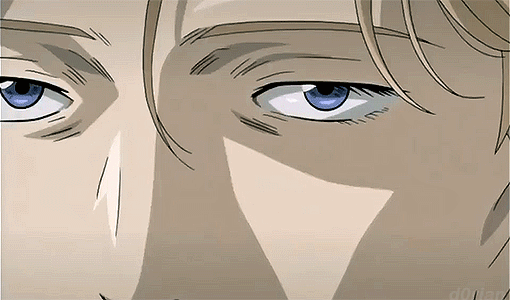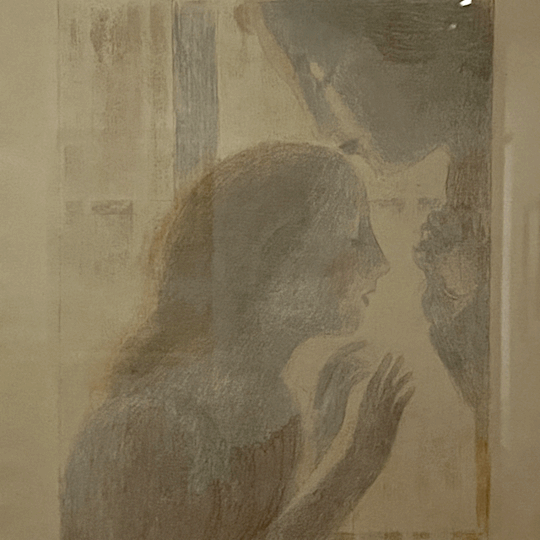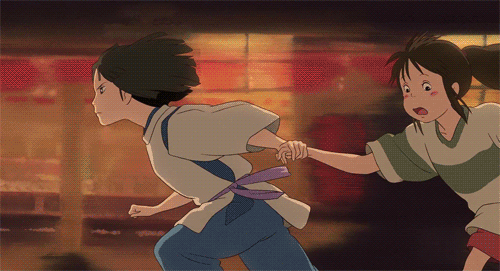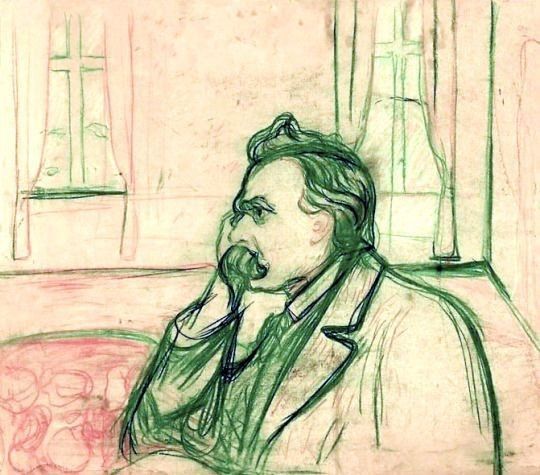Don't wanna be here? Send us removal request.
Text
Jacques Prévert (1900-1977) - La Lune

“Your pain is the breaking of the shell that encloses your understanding. Even as the stone of the fruit must break, that its heart may stand in the sun, so must you know pain. Much of your pain is self-chosen. It is the bitter potion by which the physician within you heals your sick self.
Therefore trust the physician, and drink his remedy in silence and tranquillity: For his hand, though heavy and hard, is guided by the tender hand of the Unseen, And the cup he brings, though it burn your lips, has been fashioned of the clay which the Potter has moistened with His own sacred tears.”
This profound quote from Khalil Gibran's book 'The Prophet' reflects some thoughts I've been having recently surrounding the nature of pain (& time) and its role in our lives. Pain is not punishment; we mustn't torment ourselves further by allowing it to dictate our minds and, thus, our lives. It is an inevitable aspect of the human experience, including time running its course. Why do we accept that time will inevitably run its course but not that pain is a very natural way of life too? Time is a healer, not only in the future but also in the present. Through pain, we gain a deeper understanding of ourselves, the world, and the people around us.
We have the power to alleviate our pain; should we choose to trust the physician that resides within us. It may be a bitter remedy, but much like our ability to trust doctors to heal our sick selves with medicine, we can trust ourselves. This should be second nature, but sadly, we tend to neglect ourselves (inwardly, for the most part). How sad is that?
Trust the physician within you, even when it feels heavy and hard, for you can gain inner wisdom. There is a higher power at work during the healing process; find peace amid this process!
Are you truly gaining inner wisdom since it's already within you? It is incredible to think that we already possess this wisdom and power; it just takes suffering and experience to bring it to light. Which makes me think of a quote by Albus Dumbledore:
“Happiness can be found, even in the darkest of times, if one only remembers to turn on the light.” - How lovely to think of happiness as something that can be found? Sort of like an easter egg.
J.K. Rowling, Harry Potter and the Prisoner of Azkaban

#jacques prévert#khalil gibran#Gibran#literature#quote#art#the prophet#dark academia#dark aesthetic#aesthetic#spilled thoughts#poetscommunity#words#books#spilled heart#wordsofwisdom#dark acadamia aesthetic#interpretation#opinion#novel#novel writing#harry potter#albus dumbledore#professor dumbledore#Hogwarts#hp fandom#today on tumblr#the past#potterhead#spilled ink
18 notes
·
View notes
Text
Character Analysis of Johan Liebert - Monster, Naoki Urasawa (2004)

In my opinion, Johan represents Jung's concept of the shadow, which is why both Tenma and Nina couldn't kill him in the end. Despite tirelessly, and relentlessly going after him. If they did end up doing so, they would be destroying themselves in the process. The constant fear on Tenma's face once he heard the buzz words 'monster' and 'inside of me' highlights his underlying fear. It is, of course, aggravating, considering how close they both were to killing Johan (multiple times, might I add). But, to them, it would have come at too high a cost.
Consequently, Johan was not the monster he and everyone thought him to be. The forgiveness Nina offered to Johan (as well as) Tenma’s acceptance (in a way) gave Johan that validation. In my opinion, Johan had an identity problem, not a complete lack thereof, as most people say. Johan completely understood how senseless the world is; the picture book from his childhood made sense of that senselessness. That narrative (mostly born from the book) gave significance to his existence, whether he knew it or not. I found it interesting that he went through several names throughout his life, but ‘Johan Liebert’ was recurring. Whether this is just for convenience's sake, I don’t know.
The scene where we see his reaction when re-reading the book (likely the first time since he was a child) furthers this notion. Johan's facial expressions are to be paid attention to, every single one, even if they barely change. We see the most significant change in his face in the final scene: that of sheer disappointment, hopelessness, and defeat. His master plan did not go accordingly; the plan was for him to be completely wiped off the face of the earth, rendered fictitious. The drunk man who unexpectedly shot him stripped him of that. So did Tenma, in not allowing Johan to kill/destroy his (Tenma’s) altruistic nature.
Johan's perfect suicide ultimately fails because he is not the nameless monster he believed himself to be; this is shown merely in the fact that he does not kill (nor even think about killing) Nina & Tenma; he realised that they are the only two people to understand him in this world. This also explains Johan's bizarre attachment to Tenma from the get-go (which also makes a lot of sense). In the scene where we listen to the tape, we're made aware of Johan's desperation; he does not want to forget 'Anna'; he believes they are the only two people in the world. Later on, Tenma was added to that list. Hence, every other person's life is rendered meaningless to Johan; this is the reason for his remorseless killings, of course. He killed everyone that could eventually be tied into his and Anna/Nina's existence, and arguably Tenma, too.
I also think Johan eventually lets go of this (seemingly) obsession with names in the final scene. Whether the last scene of him and Tenma speaking was a dream or not remains significant. Before Tenma reveals his potential real name to Johan, the subject is changed. This is when we learn about the biological mother's sacrifice. Despite her not choosing to sacrifice Johan, he still doubts the decision. All of this is to say that perhaps the failure of his perfect suicidal plan was, in fact, the real success after all. He successfully kills everyone who does not know him but knows of the nameless monster's existence. This explains why the only two people on this earth who did are still alive and were eventually saved emotionally.
In a way, they also saved Johan too. Hence the *seemingly* peaceful disappearance from the hospital. He just wanted to be understood. This is also why I believe he asked Nina to shoot him as a child and then again all those years later. His mother placed this seed of doubt, which he seemed confident in, but because of Nina's existence, he could extend this and not be entirely solid in this sense of doubt. He latched this on to Nina's being, hence merging their identities. As a child, he did seek her forgiveness despite his contradictory actions (asking to be shot). When she finally offered forgiveness in a similar situation later on, the doubt was gone. That little spec of forgiveness and acceptance was all he needed. Acceptance is not to say that he wanted her or even Tenma to accept his actions; hence, Johan says, 'We can't turn back now' when Nina does forgive him. Other people and their deaths (at his hands) simply did not matter to him; he was utterly indifferent to it. So evidently, that one thing mattered to him, which he mostly did not believe to be real; it turned real, giving him what he had so desperately been looking for since childhood. He is saved. The only three people that mattered in the show (concerning Johan's essence) are saved.
#johan liebert#monster anime#anime review#character analysis#kenzo tenma#nina fortner#anna liebert#naoki urasawa#nihilism#carl jung#anime and manga#anime recommendation#thriller#psychological thriller#psychology#philosophy#human behaviour#insights#thoughts#my thoughts#dr tenma#monster#monster manga#anime#johan monster#tenma monster#naoki urasawa's monster
152 notes
·
View notes
Text
Discovering the hidden treasures of Musee d'Orsay: Maurice Denis
'"La vie devient précieuse, discrète : les couchers de soleil ont une douceur d'anciennes peintures" Translation: "Life becomes precious, discreet: twilight has the softness of old paintings."

Maurice Denis
- I saw this lithograph at the Musée d'Orsay last year, paired with a wee segment of a diary entry which reminded me of a quote by Jeanette Winterson:
“I have noticed that when all the lights are on, people tend to talk about what they are doing – their outer lives. Sitting round in candlelight or firelight, people start to talk about how they are feeling – their inner lives. They speak subjectively, they argue less, there are longer pauses. To sit alone without any electric light is curiously creative. I have my best ideas at dawn or at nightfall, but not if I switch on the lights – then I start thinking about projects, deadlines, demands, and the shadows and shapes of the house become objects, not suggestions, things that need to done, not a background to thought.” [Jeanette Winterson]
"To sit alone without any electric light is curiously creative." particularly strikes a chord, as well as "the shadows and shapes of the house become objects, not suggestions... not a background to thought."
There's a chance I misinterpreted the entire purpose of this art installation, but I like the direction it had me thinking in.
It sometimes feels odd and counter-intuitive to share subjective thoughts on a social network that runs on said 'electric light' with an audience focused on the 'outward'.
How strange to think that we almost halt specific thoughts/modes of expression because we, as a society, have accepted that we are to talk least about the things we think about most? But I digress.
Some other Maurice Denis pieces that I enjoyed:


#maurice denis#parisian#thoughts#journal#academia#journalistic writing#art#lithograph#musee d'orsay#paris#france#french poetry#poetry#introspective#introspection#social media#jeanette winterson#creative writing#writings#my thoughts#dark academia#diary entry#dear diary#light academia#literature#society#social networks#spilled thoughts#spilled ink#Paris
12 notes
·
View notes
Text
Mary Oliver's "The Summer Day" through Miyazaki's realm

Who made the world? Who made the swan, and the black bear? Who made the grasshopper? This grasshopper, I mean — the one who has flung herself out of the grass, the one who is eating sugar out of my hand, who is moving her jaws back and forth instead of up and down — who is gazing around with her enormous and complicated eyes. Now she lifts her pale forearms and thoroughly washes her face. Now she snaps her wings open, and floats away. I don't know exactly what a prayer is. I do know how to pay attention, how to fall down into the grass, how to kneel down in the grass, how to be idle and blessed, how to stroll through the fields, which is what I have been doing all day. Tell me, what else should I have done? Doesn't everything die at last, and too soon? Tell me, what is it you plan to do with your one wild and precious life?
Mary Oliver
The Grasshopper as a Symbol of Presence

The simplicity of a summer's day often masks the depth of reflection it can inspire, often a freer inspiration compared to that of another time period. In The Summer Day, Mary Oliver records a fleeting moment with a grasshopper—an otherwise mundane event turned into a profound ponderment of life's transience. Oliver's fascination with the grasshopper is evident in her precise observations, where each "Now" anchors us in the immediacy of the creature's actions. The repetition of "Now" is a rhythmic reminder to fully engage in the present moment, elevating the grasshopper's simple acts—washing her face and eating sugar—to moments of sacred significance. This suggests that even the most ordinary experiences, when viewed with a mindful eye, are imbued with a profound beauty and wonder.
A crucial aspect of this reflection is Oliver’s decision to refer to the grasshopper as "her," a subtle yet powerful choice that humanises the insect (one typically discarded, much like other insects) and invites readers to see it as a mirror of the poet herself. This connection is deepened as the poem shifts from observing the grasshopper to the poet’s own introspective, almost existentialist state. The grasshopper’s simple, technical existence, is paralleled by the poet’s own acts of kneeling, strolling, and paying attention, among other acts (otherwise seen as mundane).
With its gentle meditation on nature, this poem resonates with the themes explored in Hayao Miyazaki's Spirited Away, particularly in the scene(s) accompanied by the casually melancholic, world-renowned score, One Summer's Day.
Why The, or One, Summer day?

The difference between the singular summer day in Mary Oliver's poem and the more common references to "summer days" marks a shift in tone and thematic focus. Oliver creates a space for deep contemplation and reflection by honing in on a single day. This singular day is a moment of intense focus where the reader is invited to take note of immediacy and transience of life, and what it means on an individualistic scale. The title 'The Summer Day' suggests a specific, significant day, much like the small yet detailed, pivotal moments in 'Spirited Away' that shape the narrative and the characters' experiences. One summer day can shape the entire summer season, just as one significant event can shape an entire story or life.
In contrast, when summer days are referred to in the plural, as is often the case, the tone tends to shift toward a more upbeat, joyful (collective) celebration of the season. This plural perspective generalises the experience of summer, allowing it to stretch over time and encapsulate the season's qualities as a whole rather than the intensity of a singular, reflective moment which we all experience—differing in frequency, consciousness, and extremity.
The tone of the poem is one of peaceful contemplation, with an undercurrent of melancholy as the speaker reflects on the transient nature of life. A truly specific feeling. This mood is similar to the tone of One Summer's Day, where the music and imagery in Spirited Away evoke a sense of longing for something that is just out of reach, something beautiful yet impermanent.
(A) Summertime Sadness?

The specificity of The Summer Day underscores the fleeting nature of time and the urgency of living fully, urging the reader to consider how they spend their "one wild and precious life." The repetition of "Tell me," despite the shift from passive observation to active questioning—from "Tell me, what else should I have done?" to "Tell me, what is it you plan to do"—suggests that the same forces that once pacified us can be reclaimed and turned into active, assertive intentions, forming a balance. This emphasis on autonomy starkly contrasts the capitalist ideals that prioritise efficiency and forward planning over present mindfulness. The context of nature's beauty and the existential questions it inspires is particularly poignant.
One must embrace the Present

The poem’s structure mirrors the unhurried pace of a summer’s day. Its free verse form allows the poem to flow naturally, much like the spontaneous movements of the grasshopper. This lack of structure reflects the poem’s theme of living in the moment—there is no rush, no pressure to conform, only a gentle observation of life as it unfolds. The poem’s tone, gentle yet profound, stresses the urgency (as opposed to the usual, stressful urgencies of society) of embracing the present and finding meaning in the small, often overlooked details of life.
This theme is further emphasised when considering the role of capitalism in Spirited Away. The film critiques the dehumanising effects of a society driven by greed, where even inward things, such as names—symbols of identity and connection to the self—are commodified. No Face, a mysterious and initially innocuous spirit, becomes monstrous as he consumes more material wealth, embodying the destructive nature of greed. His obsession with Chihiro reflects a desperate, almost uncontrollable desire to connect with something pure in a world corrupted by excess.

Both works ultimately remind us that our differences from nature do not separate us from it; instead, they are what bind us, offering life lessons that transcend the human experience.
After all, would Chihiro have survived if she hadn't hidden her name, thereby protecting her identity and her parents'? Would she have even recognised the importance of holding onto her name without Haku's guidance? Why does Haku return to his complete dragon form rather than becoming fully human, as is often the case in tales of human-creature transformations? Would she have become yet another template of a character in Miyazaki's realm? Art compels us to ask these sorts of questions—questions that deepen our understanding not only of the works themselves but of life


There lies the beauty of art and its interconnected nature; we must fully appreciate poetry by reading novels and critical essays, watching films, wholeheartedly listening to their soundtracks, and engaging with countless other forms of creative expression.
#literature#thoughts#poetscommunity#poetry#poem#writers and poets#academia#journalistic writing#quote#hayao miyazaki#studio ghibli#spirited away#one summer day#mary oliver#nature#nature poetry#nature poem#art#anime#animation#anime review#review#capitalism#life lessons#absurdism#philosophy#original post#summer#music#summertime sadness
66 notes
·
View notes
Text
An Ode to Lebanon: A Short Film
#lebanon#mediterranean#my travels#travel#my film#short film#lebanese#byblos#beirut#baalbek#roman ruins#archaeology#history#middle east#culture#khalil gibran#fairuz#elias rahbani#levant#west asia#levantine#ancient mediterranean#ancient history#ancient rome
72 notes
·
View notes
Text

"Walking is among the most life-affirming of human activities. It is the way we organize space and orient ourselves to the world at large. It is the living proof that repetition - placing one foot in front of the other can in fact allow a person to make meaningful progress. It's no coincidence that parents celebrate their child's first steps - the first, and perhaps the greatest, signs of independence." Hiking with Nietzsche, John Kaag
Upon reading this particular part of the book, I was deeply moved. I have felt this way before; walking allows for so much freedom, especially at one's lonesome. It is an excellent sign of independence, attained when reflective and intentional. If no one has coined it before, I will coin this sensation "lost & found". Lost & found symbolises the transition of going from being in a social (hurried) setting to a solitary (unhurried) setting. This is by no means an attempt at blaming others or pointing fingers at others. This is a mere desire to embrace authenticity, which unfortunately (or fortunately) can only be found when solitary, free from external and social noise or intrusion. At one with nature, with the genuinely free ability to 'orient ourselves to the world at large'.
The less I absorb from others, the less I'm susceptible to certain banalities, ideologies, opinions, etc, which don't align with who I am. This is simply the way of life; we must interact with all kinds of people, and whilst that has pros, it is much easier to lose yourself than to find yourself in such scenarios. Incorporating solo time or taking things slowly (with others too), the less likely you are to feel the need to rediscover your identity.
If I were to link this to a broader issue (outside of myself) and, therefore, my desire, I wish people approached one another using an individualistic approach. We are all multifaceted individuals worthy of such. Life is ultimately a game of losing and finding oneself, but the critical thing to learn here is that it mustn't get to a point where you are overly losing yourself, to the point where the urge to find yourself is no longer an urge. That urge is powerful in itself. The awareness has gone and can go at any time, which is such a scary thought. I digress; this is all to say that walking alone is ever so powerful; it's no wonder therapists highly suggest daily walks to their patients!
#friedrich nietzsche#literature#quoteoftheday#quotes#inspirational quotes#words#life quotes#nietzche#philosophy#introspection#introspective#book quotes#reading#books and reading#introvert#introversion#walking in nature#walking#peaceful#freedom#childhood#dark academia#academia#winter#light academia#slow living#identity#blog#ruminations#spilled ink
45 notes
·
View notes